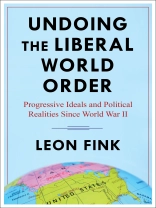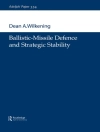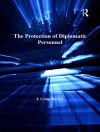In the decades following World War II, American liberals had a vision for the world. Their ambitions would not stop at the water’s edge: progressive internationalism, they believed, could help peoples everywhere achieve democracy, prosperity, and freedom. Chastened in part by the failures of these grand aspirations, in recent years liberals and the Left have retreated from such idealism. Today, as a beleaguered United States confronts a series of crises, does the postwar liberal tradition offer any useful lessons for American engagement with the world?
The historian Leon Fink examines key cases of progressive influence on postwar U.S. foreign policy, tracing the tension between liberal aspirations and the political realities that stymie them. From the reconstruction of post-Nazi West Germany to the struggle against apartheid, he shows how American liberals joined global allies in pursuit of an expansive political, social, and economic vision. Even as liberal internationalism brought such successes to the world, it also stumbled against domestic politics or was blind to the contradictions in capitalist development and the power of competing nationalist identities. A diplomatic history that emphasizes the roles of social class, labor movements, race, and grassroots activism, Undoing the Liberal World Order suggests new directions for a progressive American foreign policy.
Tabela de Conteúdo
Introduction: Left-Liberal Apostles in the Cold War Era
Part I: Labor-Liberalism and the Postwar Order
1. The Bretton Woods Boomerang: Liberal Internationalism, 1944–2016
2. The Good Postwar: German Worker Rights, 1945–1950
3. The Liberal Embrace of Labor Zionism: Israel, 1948–1973
Part II: Liberal Anticommunism
4. Anticommunism as Social Policy: Costa Rica, 1944–1980
5. Siren Song of Economic Development: U.S. Missions to India, 1952–1975
Part III: Liberal Nationalism on Trial
6. The Quest for a Two-State Solution: Israel, 1973–2000
7. The Long Arm of the Civil Rights Movement: South Africa, 1970–2000
Conclusion: Beyond Humanitarianism
Acknowledgments
Notes
Index
Sobre o autor
Leon Fink is Distinguished Professor of History Emeritus at the University of Illinois at Chicago. He is the editor of Labor: Studies in Working Class History of the Americas, the preeminent journal for labor historians. He is the author or editor of a dozen university press books, including, most recently, Labor Justice Across the Americas (Duke, 2017); The Long Gilded Age: American Capitalism and the Promise of a New World Order (Penn, 2015); and Sweatshops at Sea: Merchant Seamen in the World’s First Globalized Industry, from 1812 to the Present (UNC, 2011). He has written for the Chicago Tribune, The Nation, Dissent, Salon.com, The Daily Beast, and the Chronicle of Higher Education. He has been a Guggenheim Fellow, Fulbright Senior Scholar, and NEH Fellow.












